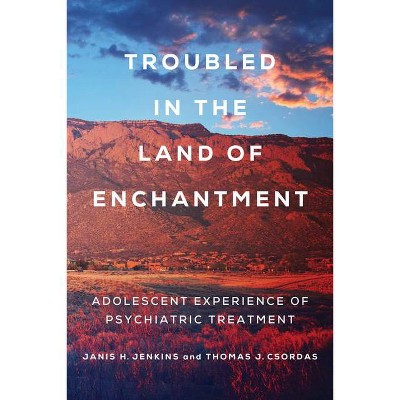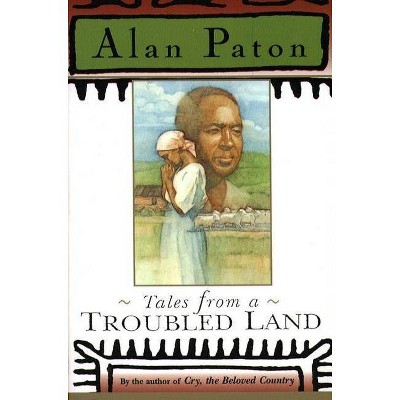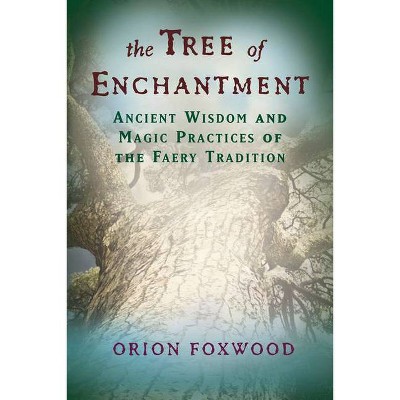Troubled in the Land of Enchantment - by Janis H Jenkins & Thomas J Csordas (Paperback)

Similar Products
Products of same category from the store
AllProduct info
<p/><br></br><p><b> About the Book </b></p></br></br>"In this groundbreaking study based on five years of in-depth ethnographic and interdisciplinary research, Troubled in the Land of Enchantment explores the wellbeing of adolescents in New Mexico hospitalized for psychiatric care. Anthropologists Thomas J. Csordas and Janis H. Jenkins present a gripping picture of psychic distress, familial turmoil, and treatment under the regime of managed care that dominates the mental health care system. The authors make the case for the centrality of struggle in the lives of youth across an array of extraordinary conditions, characterized by personal anguish and structural violence. Critical to the analysis is the cultural phenomenology of existence disclosed through shifting narrative accounts by youth and their families as they grapple with psychiatric diagnosis, poverty, misogyny, and stigma in their trajectories through multiple forms of harm and sites of care. Csordas and Jenkins compellingly direct our attention to the conjunction of lived experience, institutional power, and the very possibility of having a life"--<p/><br></br><p><b> Book Synopsis </b></p></br></br>In this groundbreaking study based on five years of in-depth ethnographic and interdisciplinary research, <i>Troubled in the Land of Enchantment</i> explores the well-being of adolescents hospitalized for psychiatric care in New Mexico. Anthropologists Janis H. Jenkins and Thomas J. Csordas present a gripping picture of psychic distress, familial turmoil, and treatment under the regime of managed care that dominates the mental health care system. The authors make the case for the centrality of struggle in the lives of youth across an array of extraordinary conditions, characterized by personal anguish and structural violence. Critical to the analysis is the cultural phenomenology of existence disclosed through shifting narrative accounts by youth and their families as they grapple with psychiatric diagnosis, poverty, misogyny, and stigma in their trajectories through multiple forms of harm and sites of care. Jenkins and Csordas compellingly direct our attention to the conjunction of lived experience, institutional power, and the very possibility of having a life.<p/><br></br><p><b> From the Back Cover </b></p></br></br>"An impressive study of the experiences of adolescents in New Mexico under mental health treatment who are struggling with living through dangers and uncertainties that define their and our precarious time. We might retitle this book <i>The Varieties of Human Experiences of Young People </i>à la William James; but I believe James would have applauded, as I do, the enormous efforts put into a long-term study to combine clinical and ethnographic methods and to do so with fidelity to the complexities and unfinished nature of life. Every clinician treating youth and adolescents, and every anthropologist interested in the development of subjectivity under adversity should read this study. It will become a model for how to conduct psychiatric anthropological research."--Arthur Kleinman, author of <i>The Soul of Care: The Moral Education of a Husband and a Doctor</i> <p/> "In this singular monograph, beautifully written and empirically rigorous, Janis H. Jenkins and Thomas J. Csordas feature an ethnographic and longitudinal account of adolescents in psychiatric treatment struggling to shape their lives under extraordinary conditions. A unique and much needed perspective on lived experiences of youth in the American Southwest, this book is a must read!"--Mary-Jo DelVecchio Good, Professor of Global Health and Social Medicine (emerita), Harvard Medical School <p/> "This theoretically and methodologically sophisticated book offers a powerful entry in the anthropological phenomenology of suffering, structural violence, and clinical care. Drawing upon a mixed-methods study, Janis H. Jenkins and Thomas J. Csordas critique the "behavioral turn" in the treatment of mental illness. They show us why experience still matters as they introduce variously situated interlocutors, including clinicians, parents, and adolescents under treatment. The adolescent voices are especially haunting--their very bluntness and unadorned quality renders suffering palpable." --Cheryl Mattingly, author of <i>Moral Laboratories: Family Peril and the Struggle for a Good Life</i><p/><br></br><p><b> About the Author </b></p></br></br><b>Janis H. Jenkins</b> is Professor of Anthropology and Psychiatry and Director of the Center for Global Mental Health at UC San Diego. Her books include <i>Extraordinary Conditions: Culture and Experience in Mental Illness </i>and <i>Pharmaceutical Self: Global Shaping of Experience in an Age of Psychopharmacology.</i> <p/><b>Thomas J. Csordas</b> is Distinguished Professor of Anthropology, James Y. Chan Presidential Chair in Global Health, and Director of the Global Health Program at UC San Diego. His books include <i>The Sacred Self </i>and <i>Body/Meaning/Healing</i>.
Price History
Price Archive shows prices from various stores, lets you see history and find the cheapest. There is no actual sale on the website. For all support, inquiry and suggestion messagescommunication@pricearchive.us



















